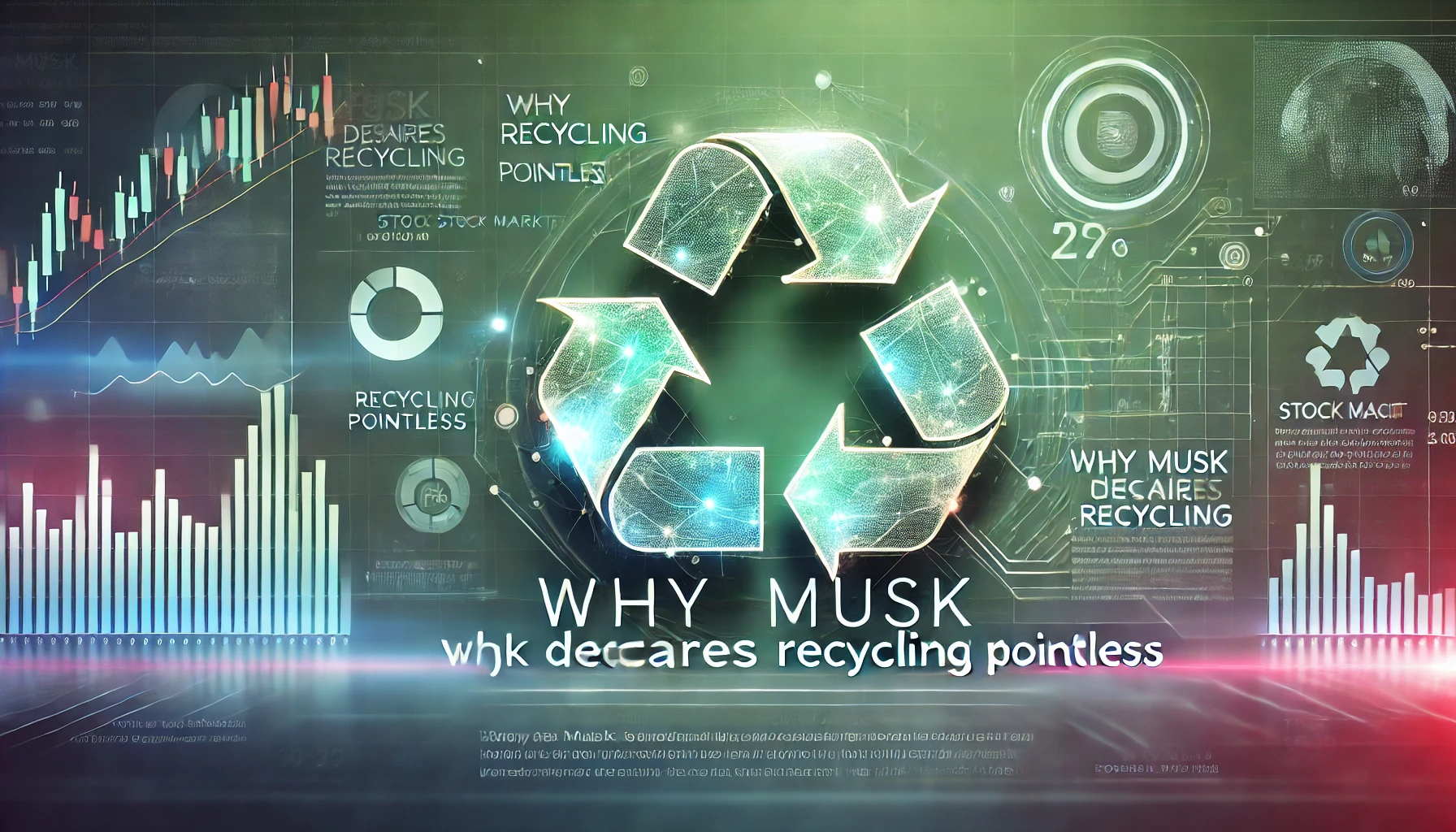In typical Elon Musk fashion, a single statement has sparked widespread controversy and intense debate. This time, it was Musk’s declaration that recycling is “pointless,” a claim that cuts against the grain of prevailing environmental and corporate sustainability narratives. But beyond the buzz, this raises critical questions for investors: How does such a high-profile comment affect industries tied to sustainability, and more importantly, what does it mean for your portfolio?
Disrupting the ESG Narrative
Environmental, Social, and Governance (ESG) investing has surged in popularity in recent years, becoming a cornerstone for many portfolios. Recycling and waste management companies, alongside renewable energy firms, are often staples of ESG-focused funds. Musk’s remark has thrown a spotlight on the efficacy of such efforts, potentially challenging the narrative that has underpinned significant capital flows into these sectors.
His statement doesn’t just ruffle feathers—it’s a direct challenge to the industries and companies built on the promise of sustainability. Companies with heavy investments in recycling technologies or green initiatives could face increased scrutiny as debates around their actual impact gain traction. If public perception shifts, so could valuations in these sectors.
Implications for Industries
Musk’s influence as a thought leader cannot be understated, especially given his leadership in companies like Tesla, which is often considered a poster child for sustainability. His comments could:
- Impact Recycling and Waste Management Firms: Companies like Waste Management Inc. or Republic Services may see heightened attention on their actual environmental contributions and financial viability.
- Pressure Renewable Energy Firms: While these firms aren’t directly tied to recycling, Musk’s critique could spill over into broader skepticism about “green” industries.
- Shift Focus to Alternatives: Musk’s contrarian take may push capital toward alternative sustainability solutions, such as circular economy innovations or new materials that reduce the need for recycling altogether.
Market Sentiment Shifts
Statements like Musk’s can often shift investor sentiment, and that’s worth monitoring. The recycling sector, in particular, could face near-term volatility. While long-term fundamentals often outweigh public discourse, short-term reactions could create both risks and opportunities for active investors.
Policy and Regulation Risks
Musk’s claim could also reignite debates among policymakers. Governments worldwide have heavily promoted recycling as a cornerstone of their environmental agendas. Any shifts in public or regulatory sentiment could affect companies in this space, particularly those reliant on subsidies or favorable policy frameworks.
Portfolio Implications: What Investors Should Do
So, how should investors respond? Here are three key takeaways:
- Evaluate ESG Exposure: If you hold ESG-focused funds or direct investments in recycling or sustainability-focused companies, take a closer look at their underlying performance metrics. Ensure that their fundamentals align with your long-term goals.
- Identify Innovation Opportunities: Musk’s contrarian view could spur innovation in alternative sustainability solutions, such as materials science or technologies that reduce waste before it requires recycling. These areas might present compelling opportunities for early-stage investments.
- Keep a Long-Term Perspective: While headlines can create noise, sustainability remains a global priority. Short-term controversies shouldn’t derail a long-term strategy. Instead, use them as an opportunity to reassess and refine your approach.
Conclusion
Elon Musk’s provocative statement about recycling being “pointless” has brought both criticism and curiosity. For investors, it’s a reminder to dig deeper into the stories that shape markets and the industries that drive them. Whether it’s scrutinizing ESG exposure or exploring new areas of innovation, staying informed about such debates is crucial to building a resilient portfolio.
As this debate evolves, one thing remains clear: the intersection of sustainability, innovation, and market performance will continue to shape investment opportunities for years to come.





